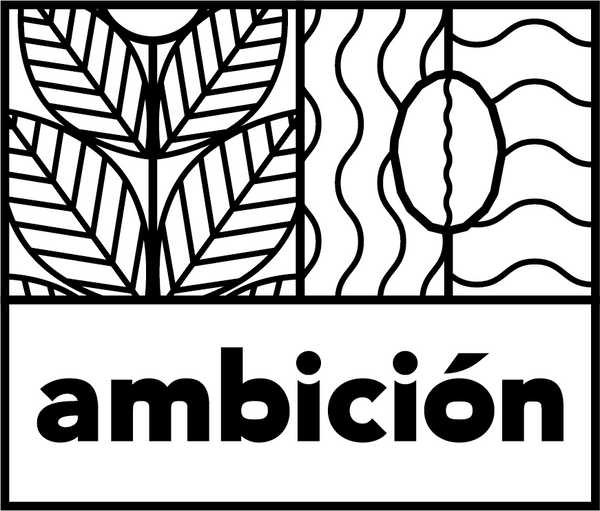
Importance of Water and Minerals in Specialty Coffee Extraction
In the realm of specialty coffee, where every nuance counts, water often takes center stage as the unsung hero of extraction. While coffee enthusiasts meticulously select beans and fine-tune brewing methods, the quality of water and its mineral composition are often overlooked. However, water plays a crucial role in unlocking the full potential of specialty coffees, shaping flavors, aromas, and overall drinking experience. Let's delve into why water matters and how its mineral content influences the final cup.
The Role of Water in Coffee Extraction
Water serves as the primary solvent in coffee extraction, dissolving and extracting a myriad of compounds from the beans. Its ability to interact with coffee grounds determines the extraction efficiency and, consequently, the flavor profile of the brew. The temperature, pH, and mineral content of water profoundly impact this process.
Minerals and Their Influence on Coffee Extraction
The mineral composition of water significantly influences coffee extraction. Calcium, magnesium, and bicarbonate ions, among others, interact with coffee compounds, affecting solubility and acidity. These minerals can enhance or hinder extraction, leading to perceptible differences in taste and mouthfeel.
Regions with Charged and Less Charged Waters
The mineral content of water varies geographically, leading to distinct brewing characteristics in different regions. Areas with limestone bedrock tend to have harder water, rich in calcium and magnesium ions. Conversely, regions with granite or sandstone formations often have softer water, containing fewer minerals.
Charged Waters:
Nordic Countries (e.g., Norway, Sweden, Finland): Known for their pristine water sources, Nordic countries often boast charged water with moderate to high mineral content. This mineral-rich water contributes to a balanced extraction, accentuating the nuanced flavors of specialty coffees.
Pacific Northwest (e.g., Oregon, Washington): The Pacific Northwest is renowned for its abundant rainfall and mineral-rich soil, which translates into charged water with optimal mineral balance. This water enhances the sweetness and clarity of specialty coffees, elevating the drinking experience.
Less Charged Waters:
Central Africa (e.g., Ethiopia, Kenya): Regions in Central Africa, characterized by volcanic soil and soft water sources, often have less charged water with lower mineral content. While this water may result in a gentler extraction, it allows for the delicate floral and fruity notes of African coffees to shine through.
Scandinavian Countries (e.g., Iceland): Despite being surrounded by mineral-rich geological formations, countries like Iceland often have less charged water due to filtration through volcanic rock. This softer water accentuates the bright acidity and complexity of Nordic-style roasts.
Conclusion
In the pursuit of exceptional specialty coffee, it's essential to recognize the pivotal role of water and its mineral composition in extraction. Whether your water hails from a charged source in the Nordic wilderness or a less charged spring in the heart of Africa, understanding its influence can unlock a world of flavors in your cup. By paying attention to water quality and mineral content, coffee enthusiasts can elevate their brewing techniques and savor the true essence of specialty coffees from around the globe.
The Role of Water in Coffee Extraction
Water serves as the primary solvent in coffee extraction, dissolving and extracting a myriad of compounds from the beans. Its ability to interact with coffee grounds determines the extraction efficiency and, consequently, the flavor profile of the brew. The temperature, pH, and mineral content of water profoundly impact this process.
Minerals and Their Influence on Coffee Extraction
The mineral composition of water significantly influences coffee extraction. Calcium, magnesium, and bicarbonate ions, among others, interact with coffee compounds, affecting solubility and acidity. These minerals can enhance or hinder extraction, leading to perceptible differences in taste and mouthfeel.
Regions with Charged and Less Charged Waters
The mineral content of water varies geographically, leading to distinct brewing characteristics in different regions. Areas with limestone bedrock tend to have harder water, rich in calcium and magnesium ions. Conversely, regions with granite or sandstone formations often have softer water, containing fewer minerals.
Charged Waters:
Nordic Countries (e.g., Norway, Sweden, Finland): Known for their pristine water sources, Nordic countries often boast charged water with moderate to high mineral content. This mineral-rich water contributes to a balanced extraction, accentuating the nuanced flavors of specialty coffees.
Pacific Northwest (e.g., Oregon, Washington): The Pacific Northwest is renowned for its abundant rainfall and mineral-rich soil, which translates into charged water with optimal mineral balance. This water enhances the sweetness and clarity of specialty coffees, elevating the drinking experience.
Less Charged Waters:
Central Africa (e.g., Ethiopia, Kenya): Regions in Central Africa, characterized by volcanic soil and soft water sources, often have less charged water with lower mineral content. While this water may result in a gentler extraction, it allows for the delicate floral and fruity notes of African coffees to shine through.
Scandinavian Countries (e.g., Iceland): Despite being surrounded by mineral-rich geological formations, countries like Iceland often have less charged water due to filtration through volcanic rock. This softer water accentuates the bright acidity and complexity of Nordic-style roasts.
Conclusion
In the pursuit of exceptional specialty coffee, it's essential to recognize the pivotal role of water and its mineral composition in extraction. Whether your water hails from a charged source in the Nordic wilderness or a less charged spring in the heart of Africa, understanding its influence can unlock a world of flavors in your cup. By paying attention to water quality and mineral content, coffee enthusiasts can elevate their brewing techniques and savor the true essence of specialty coffees from around the globe.
